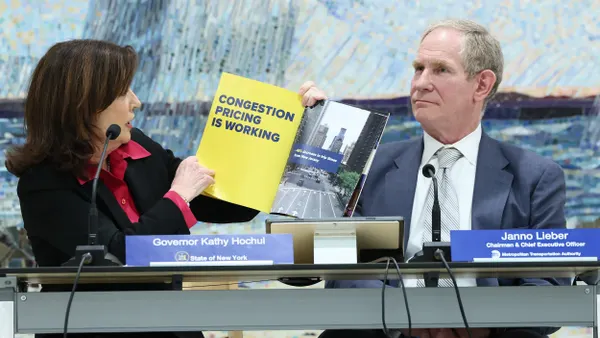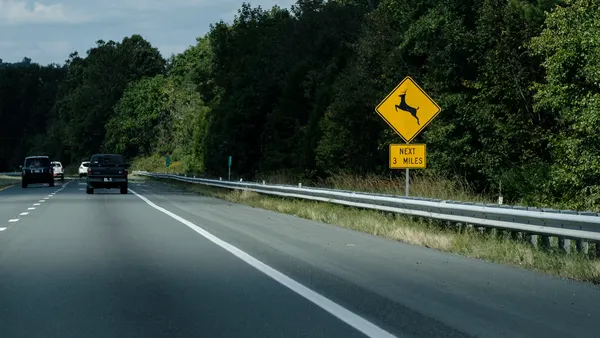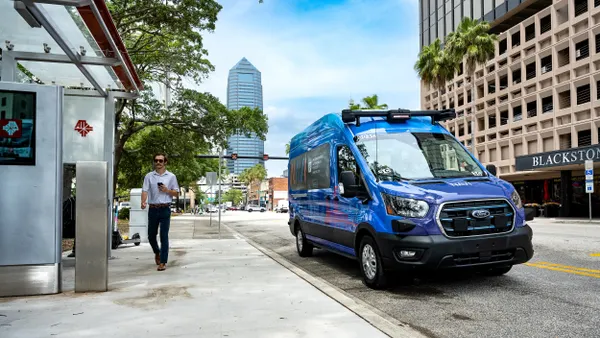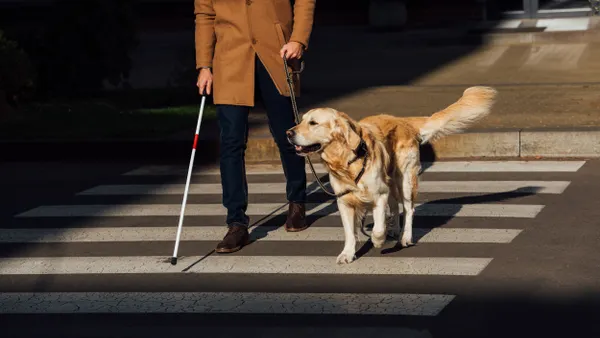Dive Brief:
- Volvo said this week that it will use in-vehicle cameras and sensors to monitor whether a driver is distracted or intoxicated, and allow the car to take action in unsafe situations. It’s part of the automaker’s goal to prevent any fatalities in Volvo cars.
- Volvo says the cameras or vehicle sensors could detect whether a driver has their eyes closed or off the road, a lack of steering input and slow reaction times. Possible interventions include a warning call from Volvo’s assistance center, limiting the car’s speed and actively slowing and stopping the car safely.
- Cameras will roll out in the early 2020s, although the automaker says details on how many and where the cameras would be positions are still being determined.
Dive Insight:
As more cities consider their own strategies to eliminate traffic fatalities, Volvo is making clear that automakers have their own role to play. The company previously said it would also limit the top speed on its cars to 180 kph (111 miles per hour) starting in model year 2021.
“When it comes to safety, our aim is to avoid accidents altogether rather than limit the impact when an accident is imminent and unavoidable,” said Henrik Green, Volvo’s senior vice president for research and development, in a statement.
The use of cameras and driving analytics adds a new level to the safety interventions, albeit one that could draw significant criticism for potential privacy invasion. Consumers continue to express concern about the safety of driverless cars, so may not be comfortable knowing that a car is monitoring them and could take control. General Motors does monitor drivers to make sure they are paying attention while the self-driving Super Cruise feature is on, and Kia has pitched a system that would monitor drivers and adapt the car’s interior to their mood. Still, consumers may be uncomfortable with the idea that their driving habits could be recorded and saved; in a statement to The Verge, Volvo said “the cameras will not record video and no data will be gathered without the user’s consent.”
Volvo’s own Vision 2020 campaign fits in with the Vision Zero initiatives adopted by cities around the world to eliminate traffic fatalities by the end of the decade. City governments have largely focused on efforts like adapting road design, improving public transit access and increased policing of traffic violations; bringing automakers into the mix could add a new line of attack against unsafe driving.









